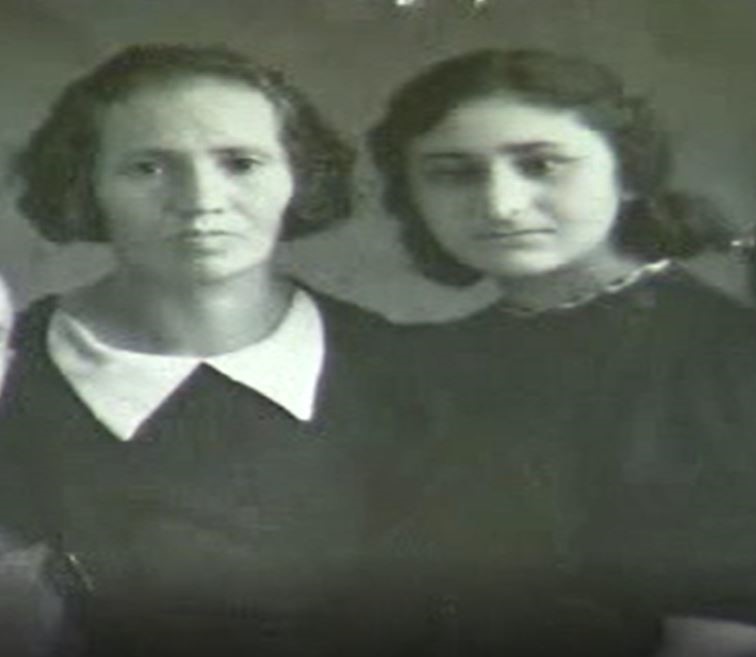Frida Idelchik was born in 1920 in the village of Leonpolie, near Klimovichi, eastern Belorussia, as Frida Ravina. Her parents, Moisei Ravin and Esfir (Esther) Ravina, were cousins. After Frida's birth, the family moved to Surazh, western Russia, and then to the nearby larger town of Klintsy, where Moisei Ravin began to work in the state trade. Esfir was a librarian. In 1937, Frida finished a Russian school, and in the late 1930s she worked as a typist at the local administration.
Following the outbreak of the Soviet-German War in June 1941, Frida's only brother, David, was drafted into the Red Army; her parents had been able to evacuate a few days before the Red Army abandoned Klintsy, and they survived the war. Frida was an active member of the Komsomol (Young Communist League), and, after the leaders of the Komsomol cell in Klintsy had been drafted into the Red Army, she became the chairperson of the cell. In mid-July 1941, the town's Party and Komsomol leadership, appealing to Frida's communist sensibilities, convinced her to volunteer for service in the Red Army. Frida enlisted together with four other girls; she became a typist at the operational department of the HQ of the 13th Army.
Frida went on to serve in the HQ of the 13th Army for three months, during which the Army kept retreating. In November 1941, the HQ came under threat of encirclement in the Kursk region (southern Russia); the top brass of the HQ escaped, abandoning the rank and file, including Frida. She began to walk eastward, hoping to overtake the retreating 13th Army. In the first village she passed through, the peasants advised her to change her military uniform for a suit of civilian clothing, and they helped her do that. Frida's eastward trek continued for ten days; her only encounter with German soldiers ended happily: These were field troops, who did not care that the girl they met was obviously Jewish.
On the tenth day, Frida arrived in a town that had a Soviet commandant's office. The commandant accused her of being a German spy: Indeed, how could she, a Jew, have survived for ten days in German captivity, if not by collaborating with the enemy? Frida was court-martialed; after a brief "trial", she was sentenced to ten years in a GULAG camp. She served her sentence in the Rakpas "correctional colony" in the Komi Autonomous Republic, in northeastern Russia. Her first job there was felling trees, and she later worked as a nurse and an agricultural laborer. However, she spent most of the time as a seamstress in the sewing workshop of the "colony".
In 1946, Frida's mother Esfir managed to get Frida's case reviewed, and Frida was released from the camp. Shortly thereafter, she married a randomly chosen man, solely in order to have her last name changed, to avoid discovery and retrial by the authorities. She moved to Minsk with her new husband; the marriage broke apart half a year later. Frida's second husband, Yisrael Idelchik, a disabled war veteran, died in 1967.
Frida's brother David was killed in action in March 1943 near Leningrad (present-day St. Petersburg).







